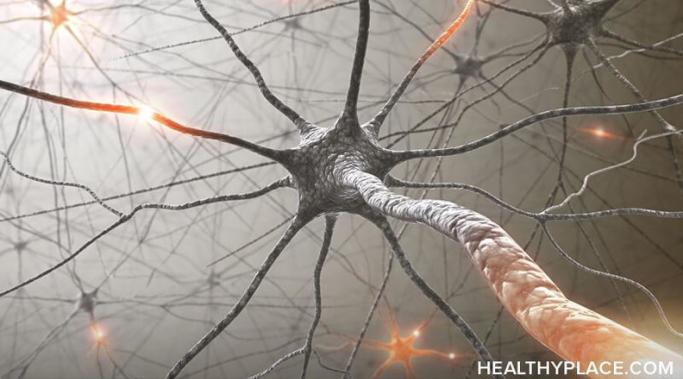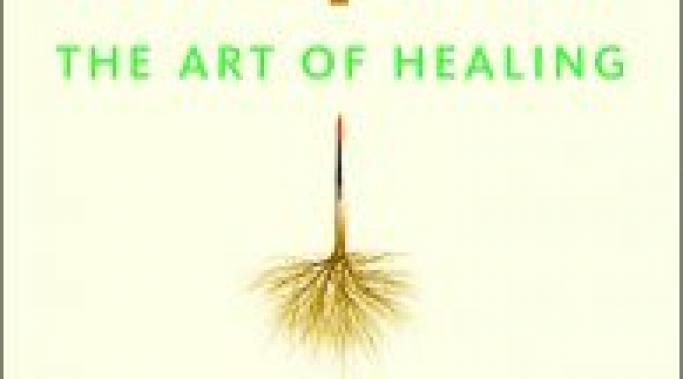People deeply involved in any way of looking at the human world tend to take that worldview with them wherever they go. So it is both with those committed to a religious tradition as well as those committed to evidence-based psychology and psychotherapy. Each of us will tend look at serious human problems from our respective viewpoints. This can get confusing. An excellent example of this came up recently with a question posted to Google+ for general comment by HealthyPlace.com:
Is forgiveness an important component of healing from trauma?
I suspect that individuals committed to both worldviews reacted to this question in fairly predictable ways. I know I did. My reaction was immediate: "Important? Absolutely not. Useful? It can be, but not in the way religious people tend to think." As I discussed the matter with a thoughtful and articulate individual, a richer picture emerged which is worth bringing to this venue, and elaborating on, for many reasons.
Trauma! A PTSD Blog
It's winter where I live. Apparently it's winter lots of places right now - a time for dark days and dark thoughts. I know a lot of people who are in trouble right now, and tempers are just a bit short, mine included. And now we have to deal with horses. It's about "healing" PTSD, you understand. Oh, you don't? Yeah, I have the same problem.
While PTSD recovery spans a slew of areas and requires many choices and actions; I’m always looking for ways to chunk down the work so that it’s more manageable. Recently, I spoke with trauma expert (and survivor of childhood sexual abuse) Bill O’Hanlon about his ideas for three simple ways to help you thrive after trauma.
While you will have your own unique healing timeline, O’Hanlon suggests powerful areas to develop that will both deepen your healing and strengthen your ability to move forward. In sharing the general concepts I’m adding my spin to their definitions so that you can conceptualize the ideas, imagine applying them to your healing process and have some simple steps to get you started.
Your body and brain's response to trauma creates your symptoms of posttraumatic stress disorder, so can your brain's activity help to heal PTSD?
Using your brain and body in PTSD recovery is critical. It isn't one or the other but both that contain important elements of healing: messages, ideas, options and opportunities for success.
The following healing stories were shared with me as I interviewed one of our national treasures: Dr. Bernie Siegel. Don't know him? He's an American writer and retired pediatric surgeon, who writes on the relationship between the patient and the healing process. Known for his best-selling book, Love, Medicine and Miracles, Bernie is a unique presence in the trauma world because he's a doctor (a/ka/, a person trained to believe "the mind and body are completely separate") who believes that not only are the mind and body connected, you can use your mind to heal your body.
Following through on PTSD healing goals is as tricky as sticking to New Year resolutions: you muster up a lot of determination and make big promises and then, around about this time of January (or a few weeks into the plan) your momentum slows and things fall apart. Why is that and how can you make it past the flagging focus to follow through on your PTSD healing goals? One idea is to strengthen your goal plan at its foundation.
I have been asked by a reader to “explain the interaction between grief and PTSD”. Her brief question also made reference to “"PTSD symptoms" of flashbacks, nightmares, and intrusive thoughts” whose content relates to her “death trauma”. There is a lot to respond to in this query.
As with many common words, most of us don’t much pause when we encounter the word “grief”. It has, however, received a detailed and careful consideration in psychology, and I have written in detail about some aspects of this elsewhere. In summary, grief is a variety of a feeling called distress, which is the brain’s automatic response to loss. It lies on the high end of a continuum that runs from minor loss (say, of your car keys) to extreme loss (such as of a child), which can be called “anguish”. Put into words, that continuum might look like this: distress → sadness → sorrow → grief → anguish. In summary, grief is involuntary, fairly serious, and can become very serious.
In my previous post, I looked at the question of whether or not your therapist was doing "the correct thing" in treating your PTSD. I suggested that this is an ambiguous question, for what is correct from her or his point of view is usually related to the treatment model they are using, while for YOU it is not about that at all. So, we really have two questions to look at.
I suggested previously that assessing whether or not your therapist was doing the correct thing was basically beyond the capability of most psychotherapy clients, with the probable exception of a client who was themselves a psychotherapist, and who uses the same treatment model. Finally, I suggested that it was actually quite sufficient for you, as the client, to deal simply with YOUR part of this question. That question, as I have thought of it, forms the title of this post: Is your PTSD therapy giving you the results you want?
So many times I've heard civilians say, "You mean, major trauma that leads to PTSD happens outside of the military?" The answer, of course, is a big, resounding, YES! The problem is that we don't have enough sources demystifying trauma and PTSD so that it's easy to see where it comes from and how it happens (Finding Meaning in Trauma and PTSD).
One of the biggest problems in my PTSD experience and my recovery from PTSD was how fragmented I was and felt. Do you know what I mean?
It seemed like I had slivers of memories, a shattered sense of self and random sprinkles of what it meant to live a healthy, 'normal' life.
Healing PTSD, to me, became finding a way to pull everything back together. It meant re-integrating who I had been with who I had become, with who I wanted to be. (PTSD and Integration: The Path To Healing) Whew, that was a big job! And back then, I didn't have the benefit of Dr. Daniel Siegel's input - but you can!









